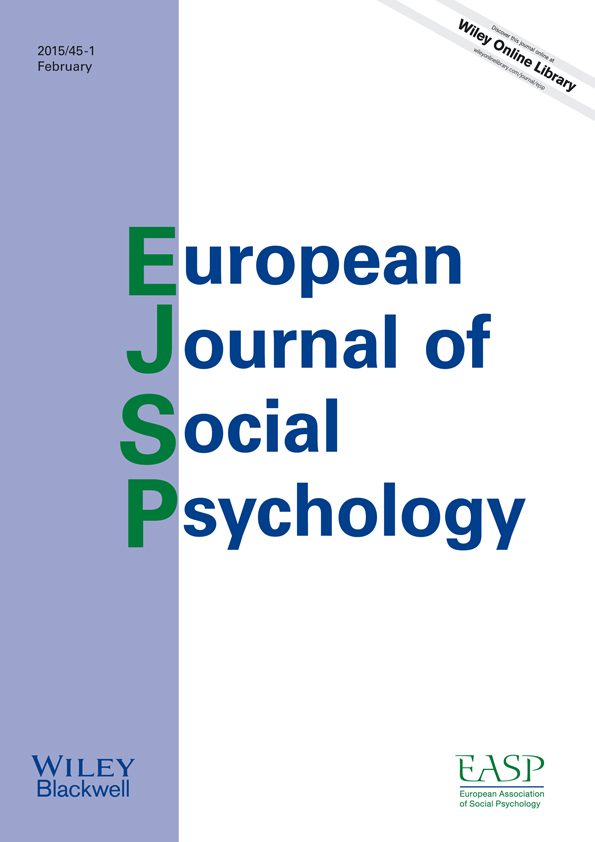Beliefs about group malleability and out-group attitudes: The mediating role of perceived threat in interactions with out-group members
Abstract
Recent research suggests that inducing fixed (rather than malleable) beliefs about groups leads to more negative attitudes toward out-groups. The present paper identifies the underlying mechanism of this effect. We show that individuals with a fixed belief about groups tend to construe intergroup settings as threatening situations that might reveal shortcomings of their in-group (perceived threat). In the present research, we measured (Study 1) and manipulated (Study 2) participants' lay theories about group malleability. We found that the extent to which individuals had an entity (versus an incremental) group theory influenced the level of threat they felt when interacting with out-group members, and that perceived threat in turn affected their level of ethnocentrism and prejudice. These findings shed new light on the role of lay theories in intergroup attitudes and suggest new ways to reduce prejudice. Copyright © 2015 John Wiley & Sons, Ltd.




